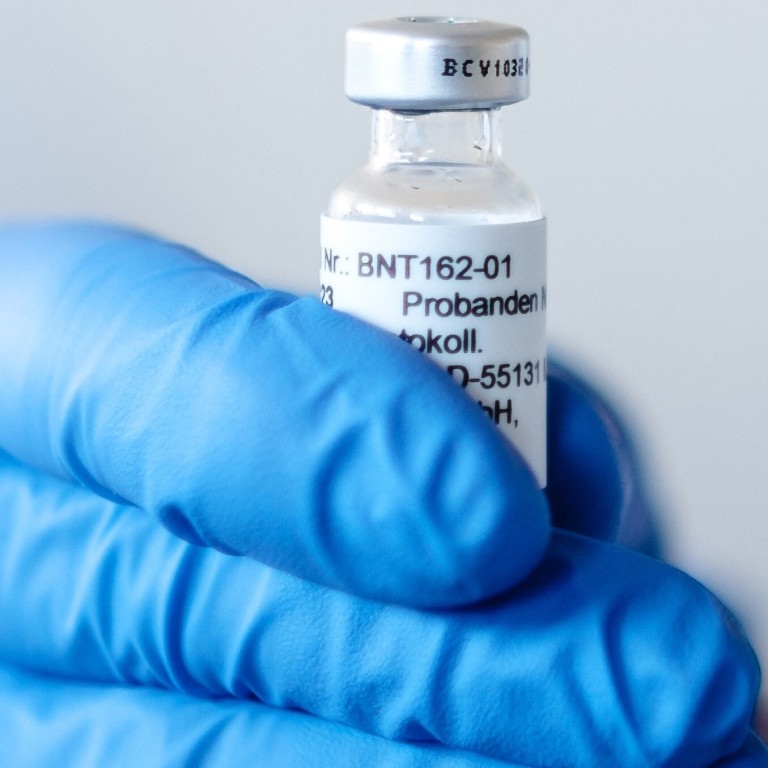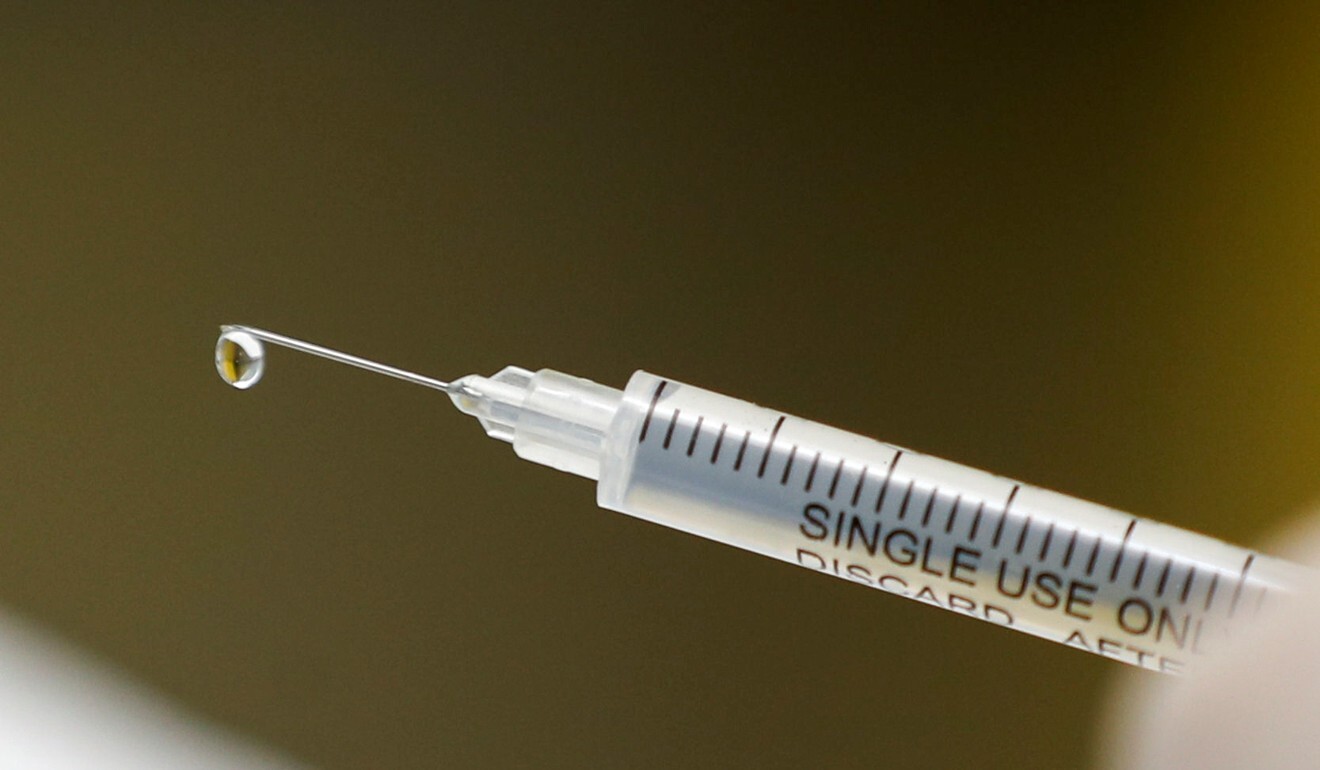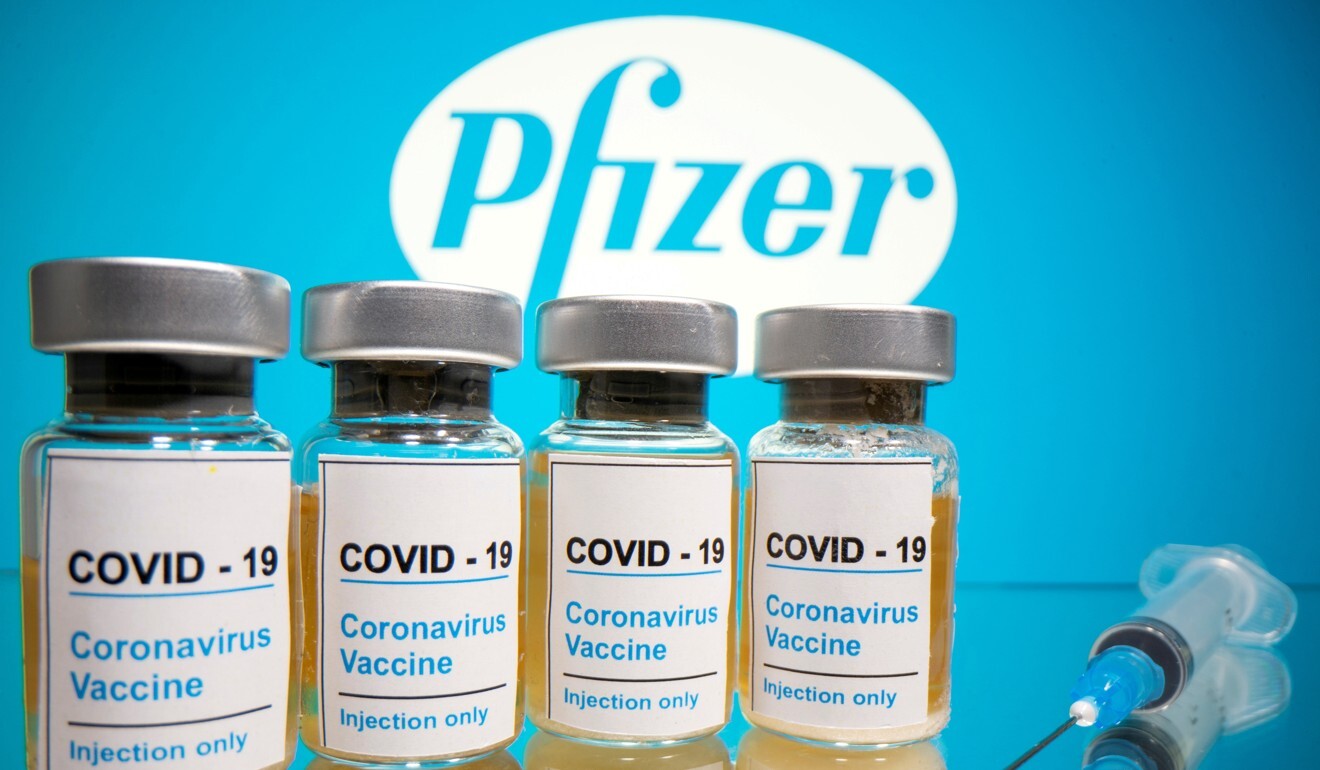
Coronavirus: Hong Kong health experts divided over procuring Pfizer vaccine that showed promising results in preventing infection
- Chinese University expert David Hui says authorities need to consider whether there are enough facilities to store vaccines at minus 70 degrees Celsius
- But William Chui, of the Society of Hospital Pharmacists, says Fosun Pharma has already identified a ‘big’ storage site near city airport
Health experts are divided on whether Hong Kong should procure a seemingly promising Covid-19 vaccine, as the Post learned that a site in the city had been identified for ultra-cold storage of the product.
The site, near Hong Kong International Airport, may resolve a major problem that appeared to be an obstacle to some Asian nations. But a respiratory medicine expert argued there were still other challenges in using the vaccine in Hong Kong.
Hopes to end the Covid-19 pandemic were raised across the globe earlier this week, after American firm Pfizer and its German partner BioNTech announced that their vaccine candidate was more than 90 per cent effective in protecting people from the infection.

Fosun Pharma, a Shanghai-based company which had the exclusive rights for the vaccine in the Greater China region, had signed an agreement with a distributor to potentially supply 10 million doses to Hong Kong and Macau if clinical trial results were approved by regulators, according to the firm’s statement in late August.
Hong Kong has also joined the Covax Facility, an initiative co-led by the World Health Organization to distribute Covid-19 vaccines globally. The Pfizer vaccine is one of those covered by the initiative.
Coronavirus vaccines could be ready for Hong Kong next April
While scientists remained cautious over the data which had not yet been peer-reviewed, local experts also voiced concerns over challenges posed by the specific storage and logistics requirements for the Pfizer-BioNTech vaccine.
The vaccine would need to be stored at minus 70 degrees Celsius to stay effective. Facilities with such ultra-low temperature are limited in the city and can hardly be found in hospitals or clinics.
“Do we have enough facilities to store those vaccines? We need to consider carefully before deciding,” said Professor David Hui Shu-cheong, an expert from Chinese University who advises the government on the pandemic, noting that adequate space would be needed to store millions of vaccine doses to cater to the city’s population.

Among 10 Covid-19 vaccine candidates which have entered phase three or the final stage of clinical trials, the Pfizer vaccine is the only one that requires such an ultra-low temperature for storage.
Other Covid-19 vaccines that are anticipated by the global medical community include one being jointly developed by British drugmaker AstraZeneca and the University of Oxford, and another one from American firm Moderna.
William Chui Chun-ming, president of the Society of Hospital Pharmacists, told the Post that Fosun Pharma had identified a storage site in the city that could store vaccines at minus 70 degrees Celsius.
“The site is near the Hong Kong airport … and is quite big,” Chui said, noting that it should be able to take in a large amount of vaccines.
But the exact location of that site and its storage volume remained unclear.
The Post has contacted Fosun Pharma and the Food and Health Bureau for comments.
In a reply on Friday, the bureau stated that it had been liaising with various vaccine producers on advance purchase agreements, but relevant information could not be provided as non-disclosure agreements had been signed.
The Pfizer vaccine can be stored at a range of 2 to 8 degrees Celsius for a maximum of five days, after it is brought out of the sub-zero temperature, and such storage can be done in pharmaceutical fridges that are more commonly seen in hospitals and some clinics.
Infected passengers from Nepal may have sparked latest round of Covid-19 cases in Hong Kong
Chui said the government should arrange for pharmaceutical fridges – which can maintain a stable temperature compared to home fridges used in some clinics – in health care settings if the Pfizer vaccine was to be introduced to the city.
The technology used to produce the vaccine would make the product very sensitive to temperature, Chui said, but it would also enable mass production easily.
The logistical requirements for the vaccine appeared to be more complicated.
Hui said the vaccine must be administered within five days after being brought out of sub-zero temperature, and it had to be diluted before inoculation.
“It’s not like other flu vaccines that are wrapped in sterile packages and can be used immediately,” he said.
Dr Joseph Tsang Kay-yan, a specialist in infectious diseases, said the challenges would be “manageable”, while expecting that the Pfizer vaccine would be the first one available in the market.
“If that vaccine is proven to be scientifically sound with valid data, the government would need to think of ways to settle issues such as storage and logistics,” Tsang said.
He said some other vaccines such as those for shingles also required dilution before administration.
The issue of a limited time during which the Pfizer vaccine can be kept at temperatures above zero could be tackled with an appointment system.
“We are left with no options if we want to end the pandemic,” Tsang said.

